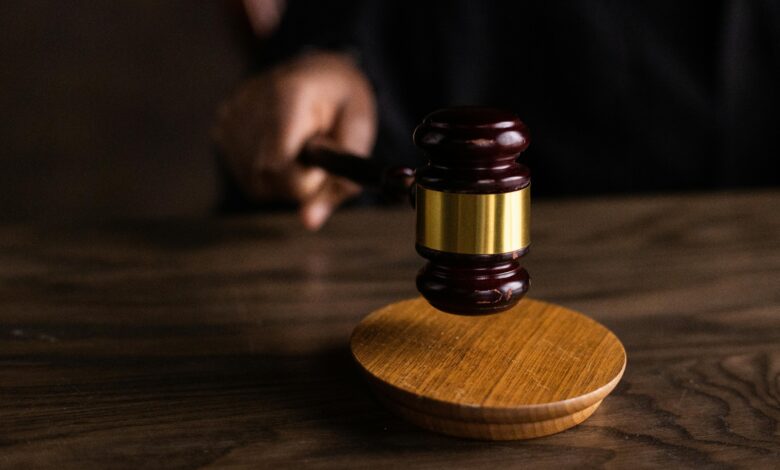Exploring Legal Options: Assessing Eligibility for a Tepezza Hearing Loss Lawsuit
Assessing Eligibility for a Tepezza Hearing Loss Lawsuit

In recent years, Tepezza, a medication primarily used to treat thyroid eye disease (TED), has gained attention for its therapeutic benefits. However, it has also garnered notice due to potential side effects. One such side effect that has emerged is hearing loss. It has prompted individuals who have experienced this adverse reaction to explore legal options for seeking compensation.
Frontiers states that TED is a relatively rare disease, with a calculated prevalence of 90 and 250 cases per 100,000 individuals. It commonly manifests in 25%–40% of patients with Graves’ disease (GD). It results from losing immune tolerance to the thyroid-stimulating hormone and insulin-like growth factor 1 (IGF-I) receptors.
Tepezza has emerged as a significant advancement in the treatment of TED, offering hope to many patients grappling with its debilitating symptoms. However, despite its efficacy, the potential side effects of Tepezza cannot be overlooked.
In this article, we’ll explore several key aspects surrounding Tepezza and its side effects. We’ll also delve into seeking legal representation and the various options available for compensation and remedies.
Understanding Tepezza and Its Side Effects
Tepezza (teprotumumab-trbw) is an FDA-approved medication for treating TED, a rare autoimmune condition affecting the tissues around the eyes. While Tepezza has shown effectiveness in managing TED symptoms and improving the quality of life for many patients, it carries potential side effects.
One such side effect that has raised concerns is hearing loss. While hearing loss isn’t commonly listed as a side effect in Tepezza’s official prescribing information, reports exist of individuals experiencing this reaction post-treatment. Such occurrences warrant thorough examination and consideration. The exact mechanism by which Tepezza may cause hearing loss is not fully understood and requires further investigation.
Medical News Today classifies the side effects of Tepezza treatment into two categories: mild and severe. Mild side effects include nausea, hair loss, fatigue or weakness, changes in taste, headache, dry skin, muscle spasms, and diarrhea. However, many of these potentially diminish during or after treatment.
On the other hand, serious side effects encompass hearing problems like hearing loss, infusion reactions, hyperglycemia (high blood sugar levels), and allergic reactions. Infusion reactions associated with Tepezza may lead to short-term increases in blood pressure, elevated heart rate, and breathing difficulties.
Patients experiencing these side effects should promptly consult their healthcare provider for evaluation and guidance. Monitoring and addressing any adverse reactions is crucial to ensure the safety and well-being of individuals undergoing Tepezza treatment.
Legal Considerations for Filing a Lawsuit
For those who’ve experienced hearing loss post-Tepezza treatment, filing a lawsuit offers a potential avenue for seeking compensation. Yet, initiating legal action demands careful consideration of multiple factors. These include the strength of the case, the statute of limitations, and the availability of evidence linking Tepezza to hearing loss.
Assessing Eligibility for a Tepezza Hearing Loss Lawsuit
To determine eligibility for a Tepezza lawsuit, individuals must meet certain criteria. First and foremost, they must have a confirmed diagnosis of hearing loss that occurred after taking Tepezza. Additionally, they must be able to establish a causal link between their hearing loss and the medication. It often involves consulting medical experts who can provide testimony linking Tepezza to the adverse reaction.
TorHoerman Law states that the eligibility may depend on the jurisdiction of the lawsuit, as laws regarding pharmaceutical liability vary from state to state. Consulting with an experienced attorney specializing in pharmaceutical litigation can help individuals assess their eligibility and navigate the legal process effectively.
Gathering Evidence and Documentation
Gathering evidence and documentation to support the claims is central to building a strong case for a Tepezza hearing loss lawsuit. It may involve medical records detailing hearing loss onset and progression, Tepezza treatment records, and relevant healthcare provider communications on adverse reactions.
Additionally, obtaining expert testimony from otolaryngologists or other medical professionals specializing in hearing loss can strengthen the case. They provide scientific evidence linking Tepezza to the adverse reaction.
In January 2022, an NIH case series reported four cases of Tepezza-associated hearing loss. These cases involved patients treated by three doctors out of 28 patients. The authors suggested a mechanism for Tepezza-induced hearing damage.
Subsequently, in February 2022, another report presented a prospective observational case series on Tepezza’s hearing loss. The findings indicated that three out of five patients with Tepezza-related hearing loss experienced persistent subjective hearing loss at the last follow-up. These studies provide a foundation for documenting claims and establishing the link between hearing issues and Tepezza.
Seeking Legal Representation
Navigating the complexities of pharmaceutical litigation requires the expertise of skilled legal professionals specializing in this law area. When seeking legal representation for a Tepezza hearing loss lawsuit, individuals should prioritize attorneys with successful experience in similar cases. They must have a deep understanding of pharmaceutical liability laws.
A reputable attorney will thoroughly review the case, advise on the best action, and vigorously advocate for their clients. They always ensure their clients receive fair compensation for their damages.
Options for Compensation and Remedies
In a Tepezza hearing loss lawsuit, individuals may be entitled to various forms of compensation for damages incurred due to their injuries. It may include compensation for medical expenses, lost wages, pain and suffering, and diminished quality of life.
In some cases, individuals may also seek punitive damages. This can be pursued if you can demonstrate that the pharmaceutical company acted recklessly or negligently in marketing Tepezza. You can also pursue claims if the manufacturers fail to adequately warn about the risk of hearing loss.
Additionally, remedies may include seeking changes to Tepezza’s labeling or prescribing information. It aims to more accurately reflect the potential risks associated with the medication, thereby helping to prevent future incidents of hearing loss.
In conclusion, navigating the complexities of a Tepezza hearing loss lawsuit requires careful consideration and expert guidance. Each step is crucial in pursuing justice, from assessing eligibility to gathering evidence and seeking legal representation.
With the support of knowledgeable attorneys and the evidence provided by medical studies, individuals can strive to hold pharmaceutical companies accountable. They can also seek compensation for the adverse effects of Tepezza. Exploring legal options empowers those affected by Tepezza-related hearing loss to assert their rights and promote safer medication practices.



